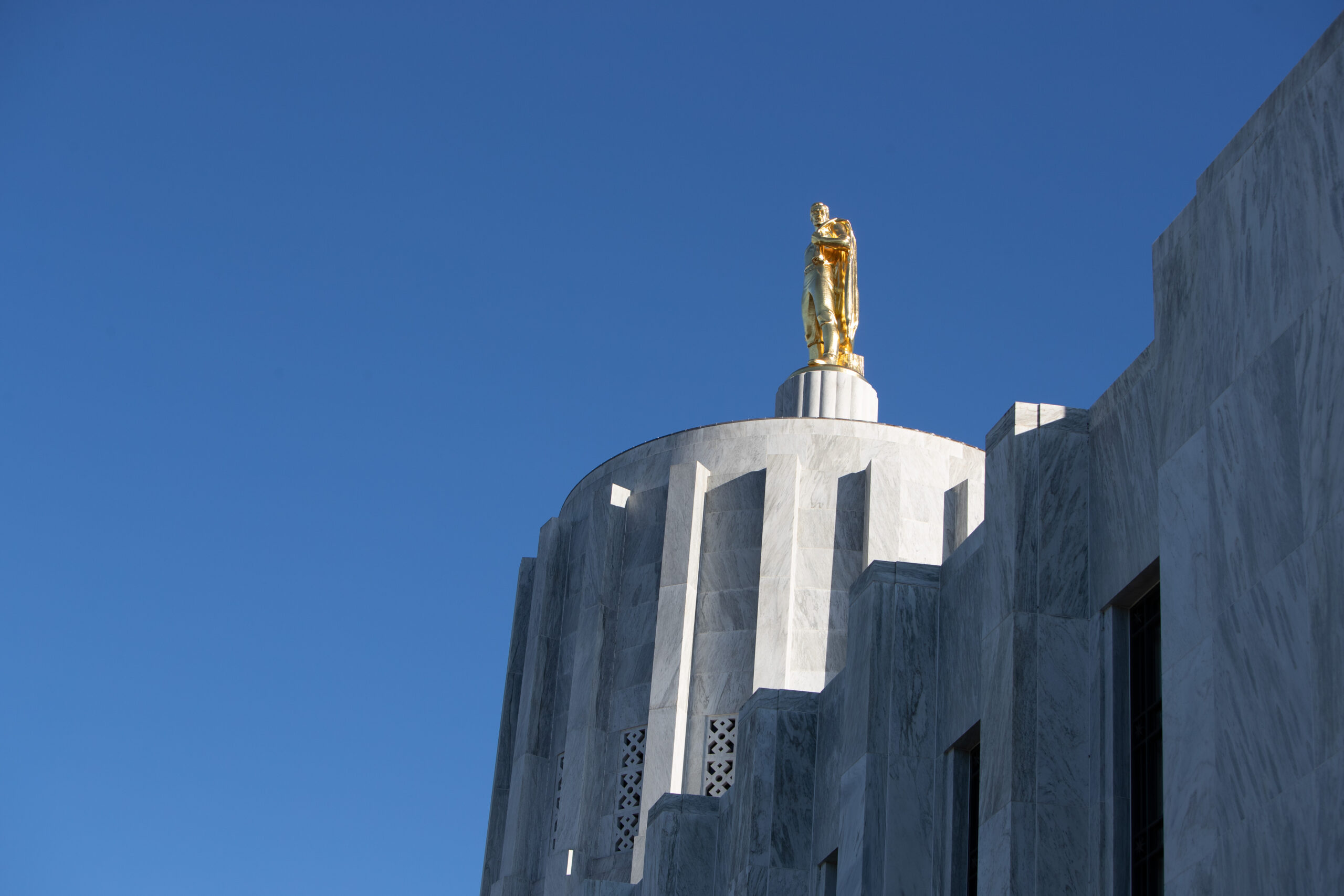Shortly after this year’s midterm elections, an anti-government group in Oregon called Timber Unity posted a call to action on Facebook. It asked its followers to “bombard” Portland City Council members during an upcoming hearing over a proposed change to a motor vehicles fuel code.
The changes in the code would reduce dependence on nonrenewable fossil fuels by “increasing the required percentage of renewable fuels blended with petroleum diesel.”
In its post, Timber Unity called this a “special eletist [sic] blend” that would raise the price of diesel, lead distributors to disinvest in Oregon and cause biodiesel and renewable diesel to “not meet specs.”
All of these claims were false, according to the City of Portland Bureau of Planning and Sustainability.
Timber Unity has been active in Oregon politics since its founding three years ago.
This year, it endorsed Republican Christine Drazan for governor. Even though she lost, other conservative candidates won and did so with help from Timber Unity, an increasingly active conservative organization with a decidedly anti-conservation agenda.
County commissioners backed by Timber Unity flipped several seats this year, including Ben West who won in Clackamas County, unseating an incumbent. In Lane County, Ryan Ceniga defeated Dawn Lesley, an environmental engineer who prioritized climate change.
Taking over these hyper-local positions has been central to Timber Unity’s strategy of political influence.
Timber Unity’s origins
In June 2019, truckers and loggers living mainly in logging country between the coast and Portland became fed up and angry over a proposed carbon emissions bill.
Many of them, including the trucker and movement’s founder, Jeff Leavy, viewed the bill as a means of killing jobs.
In fact, the bill would have financially benefitted rural communities, such as theirs, affected by climate change.
Known as cap-and-trade, the bill proposed that companies emitting more than 25,000 metric tons of carbon dioxide would have to buy carbon credits at auction.
But the proposal galvanized workers in the industry who mistakenly thought that China would be able to trade in the marketplace and, as Leavy put it to me, “keep polluting this earth on our dime.”
After hearing about the bill, Leavy used Facebook to organize a protest at the Capitol in Salem.
Over the course of several weeks in June, truckers and haulers staged their rigs, coordinated a convoy and held speeches in front of the Capitol.
They called themselves Timber Unity.
Soon after that protest, right-wing figures, including anti-vaxxers and secessionists, joined Timber Unity.
The protests attracted national media attention and statewide political interest.
That month, each of the 11 Republican state senators walked out of the legislative session and effectively killed the bill.
Political alignment
Now over three years later, Timber Unity is still energized, even after some initial internal splintering and leadership changes (Leavy says he resigned).
The group endorsed several winning candidates in the 2020 election, and even helped flip a House seat that hadn’t voted for a Republican in two decades.
In a September 1 Facebook post leading up to this year’s elections, the group applauded then candidate and former House minority leader Drazan for joining a 2020 Legislature walkout by Republicans over a bill aimed at reducing greenhouse gas emissions.
The news that Timber Unity endorsed Drazan wasn’t a complete surprise despite the fact that an early Timber Unity supporter, Betsy Johnson, ran this year as an independent.
Angelita Sanchez, a co-director of the Timber Unity PAC, told me, vaguely, that Johnson was “a yes vote on a gas tax,” which Sanchez considered a “bad vote.”
And Mike Pihl, a former Timber Unity president, was already listed as an endorsement on Drazan’s website.
Anti-conservation agenda
In interviews, Timber Unity leadership distances itself from extremism and right-wing figures, but posts on Facebook and other promotional materials reveal far-right ideologies.
In October, Timber Unity screenshotted a Vox story headlined “How logging, a Nike founder, and the alt-right warped the Oregon governor’s race” and wrote, “Well, well, WELL!!! Look at what we have here!!! The FAR LEFT EXTREMIST came out with a story today, and lets just say they are running scared and they give ALL THE CREDIT TO YOU!!!”
The group also previously promoted a rally with a poster that included a QAnon banner and members of the private Facebook group in 2020 included election deniers, QAnon conspiracy theorists and at least one man calling for war ahead of the Capitol riots.
The rise of Timber Unity mimics previous anti-government movements, particularly in western states.
The “Wise Use” movement in the 1980s and ‘90s, for example, wanted the expansion of private property rights and less government oversight on federal lands. Its anti-government and anti-environmental rhetoric was similar to that used by Timber Unity, which sees environmental and government regulation as an infringement on freedom and rights.
Pihl, the former president, told me there’s already too much regulation of the timber industry.
“We already have the Forest Protection Act, which is very deep and it’s 87 pages of regulation,” he says. “I have it sitting on my desk, I read it all the time and there’s so many protected already, like the Siuslaw National Forest. You can’t do anything there.”
Timber Unity has successfully tapped into deep-seated resentments over environmental regulation, and its statewide support seems here to stay—at least for now.
This story was originally published in Columbia Insight, an independent environmental journalist news site.
Source link
Related
































